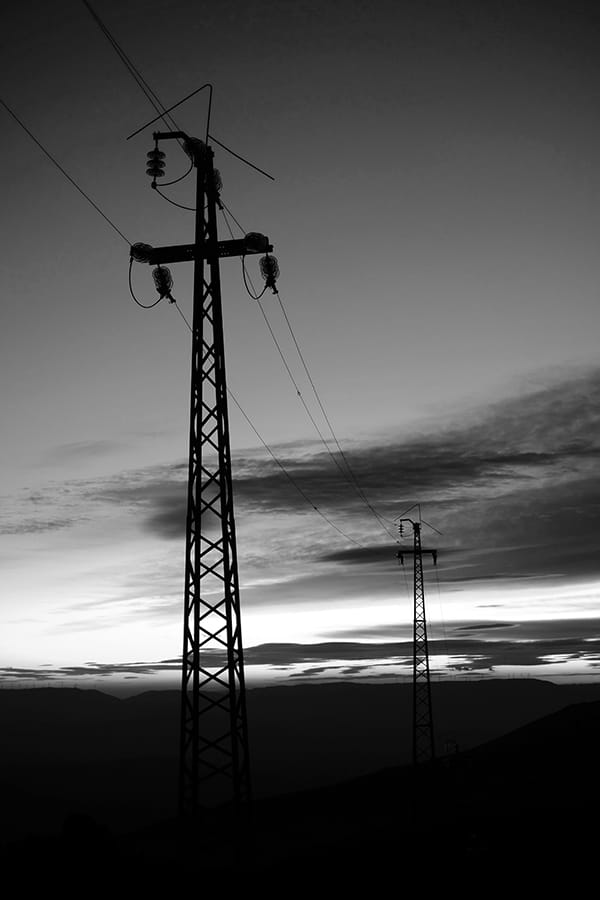ENERGY Regulation
Why do we regulate?
The concept of regulating a country’s energy sector is more than one hundred years old, having been initiated in America. In later years, Europe also established regulatory agencies for the energy sector having seen the need for dedicated bodies to regulate what is often referred to as the engine of any economy – the energy sector. It has been argued that the steady development of the energy sector in the developing world is partly attributable to the presence of regulatory agencies, specifically focused on that sector. It is therefore not surprising that the developing world has decided to follow suit in recent years. Thus, at present, regulation is a worldwide phenomenon common in both the developed and developing countries. In fact, some countries without regulatory agencies in place feel left behind and are in a hurry to learn from countries with regulators in place.
Over the years, the ever-increasing involvement of the private sector has reinforced the need for autonomous agencies to regulate the sector. Regulation has largely entailed balancing the needs of both consumers and utilities. Thus, through regulation, utilities are able to operate in an environment where they can get a reasonable rate of return on their investment, while providing a quality service to consumers. With the advent of regulation, there now exist generally distinct and clear roles for different players in the sector. Government formulates policy, utilities provide the services while autonomous agencies regulate the sector. This has helped to boost investor confidence in the energy sector as there is a higher likelihood of a level playing field.

ZAMBIA
In 1994 the Government of the Republic of Zambia promulgated a National Energy Policy to guide the administration of the sector. This was in recognition of the critical role that energy plays in socio-economic development and poverty reduction and the need to enhance that role. At the time, there existed no regulatory body, and the law allowed for a monopoly in the provision of electricity services in Zambia, among other things. One of the key strategies outlined in the policy was to provide leadership in the energy sector through licensing and other regulatory instruments.
In that regard, legislation to do with electricity (The Electricity Act) was reviewed to open up the sector and new legislation (The Energy Regulation Act) was introduced to provide for the establishment of a regulator in the energy sector. Thorough processes were undertaken including consultations and reference to international best practice during the review of existing legislation before introduction of new legislation.
 THE ENERGY REGULATION BOARD
THE ENERGY REGULATION BOARD
The need to establish a regulator in the energy sector mainly arose from the liberalization policy which allowed many players to come into the sector and this required an agency to ensure that there was coordination and a level playing field in the sector. The Energy Regulation Board (ERB) was thus established in 1997 following the enactment of the Energy Regulation Act, Cap 436 of the Laws of Zambia.
ERB was established to regulate undertakings/utilities in the energy sector including Electricity, Fossil Fuels (petroleum) and Other Forms of Energy such as solar and coal, through specialised licences it would issue. Currently, regulated utilities include ZESCO, Copperbelt Energy Corporation and Lunsemfwa Hydro Power Company under the electricity sub-sector. ERB also regulates the refining, marketing of, importation and transportation of crude and finished petroleum products under the petroleum sub-sector. Some of the companies regulated include INDENI Oil Refinery, TAZAMA Pipeline and all Oil Marketing Companies such as BP (Z), Total (Z), Petrotech and Engen. Due to the conducive investment environment created by Government and the ERB, there are now more than 19 oil marketing companies operating in Zambia and consumers are receiving a better level of service, owing to increased competition.
Since inception, the ERB has developed regulatory procedures and systems to facilitate the regulation of the energy sector in line with its mandate and mission. For example, in the petroleum sub-sector ERB has set standards for all petroleum products on the market so that consumers are protected. This, to a large extent, also prevents sub-standard products from entering the market and ensures Zambia does not become a dumping ground for undesirable products.
CONCLUSION
Aspiring to be world class, firm but fair regulator that inspires the confidence of all stakeholders, the ERB is regulating the energy sector in Zambia with due to consideration to the world trends in the sector. After ten years, ERB has firmly positioned itself and provided leadership in the sector. This has considerably raised the standard of service provision mainly through enforcement of procedures and guidelines for the sector. The presence of ERB in the sector has also helped to promote investment by providing an environment in which investors can have a reasonable rate of return on their investment and still provide a quality service to consumers. The level of competition has also improved resulting in increased availability and quality of energy services. Further, adherence to the rules by players is emphasised as sanctions are firmly but fairly applied.